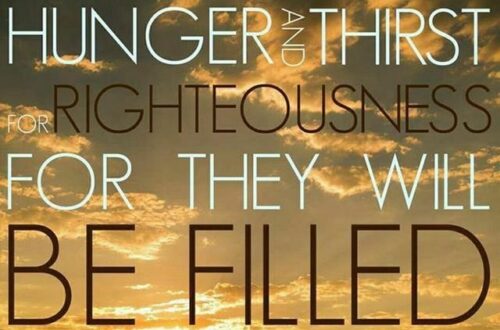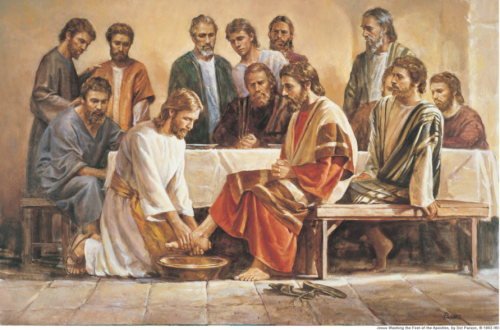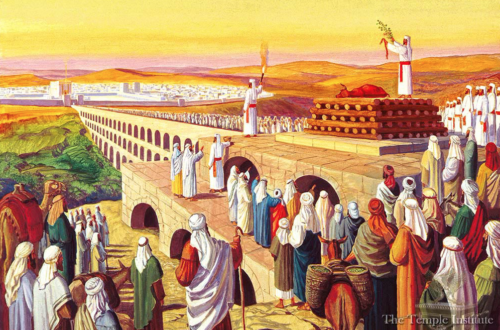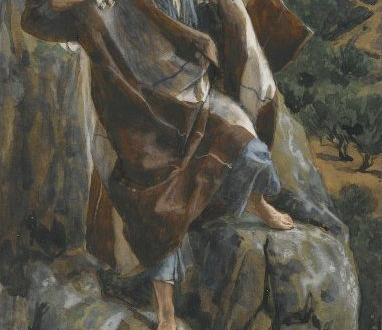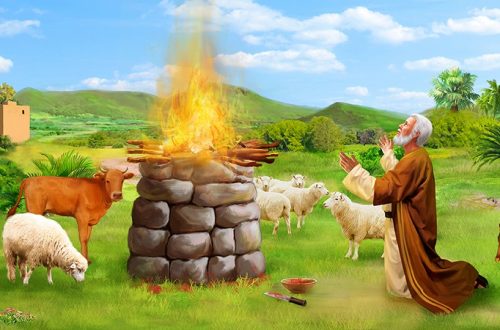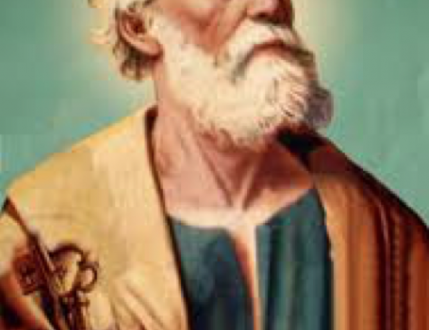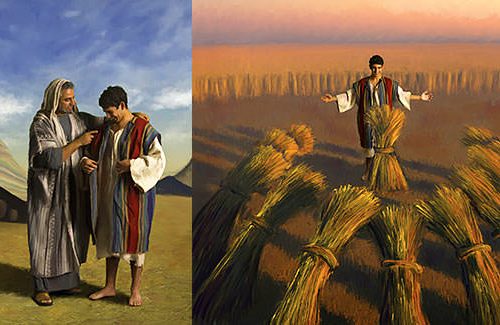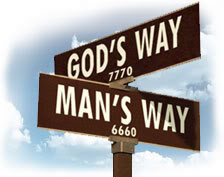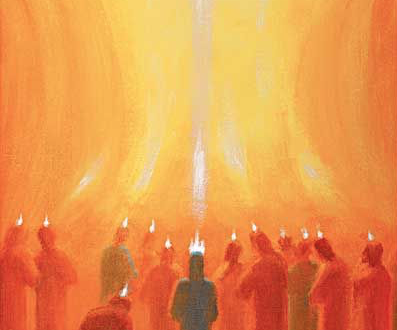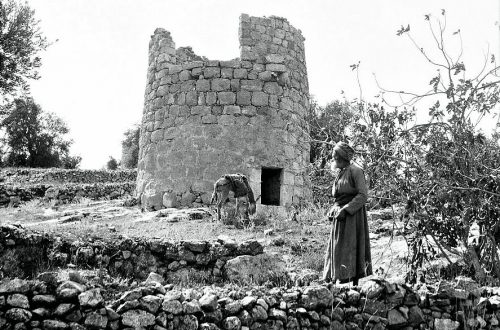-
Performing deeds of kindness
Matthew 25:31–46 forms part of the lectionary readings for the twenty–fifth Sunday after Pentecost, which is November 22nd. Chapters 24 and 25 comprise the last of the five discourses in the first Synoptic Gospel. Because Jesus was sitting on the Mount of Olives when He taught this material to His disciples, it has been called the Olivet Discourse. It contains some of the most noteworthy prophetic passages in all of Scripture. In 24:1–14, Jesus revealed the signs of His return. He then talked about perilous times (vv. 15–28) and the glory associated with His Second Coming (vv. 29–31). In the parable of the fig tree (vv. 32–35), Jesus said that…
-
Deborah, a faith-inspiring leader
Judges 4:1–7 forms part of the lectionary readings for the twenty-fourth Sunday after Pentecost, which is November 15th. This book describes life in Israel after Joshua’s death (a period around 1210–1051 B.C.). As the nation was established in Canaan, its days of wandering ended. Many of the covenant promises God made to Abraham, Isaac, and Jacob were being fulfilled. Chapters 2–5, however, show a tragic cycle of disobedience, oppression, repentance, and deliverance that happened repeatedly throughout the times of the judges. The reason is that Israel forgot its heritage and all that God had done for the nation. Consequently, the people failed to finish the job of cleansing the land…
-
A summons to faith and faithfulness
Joshua 24:1–3, 14–25 forms part of the lectionary readings for the twenty-third Sunday after Pentecost, which is November 8th. This book chronicles the way God provided for the Israelites’ entrance into the promised land. This portion of Scripture also reveals much about the character and nature of God. Specifically, the traits of the Lord are portrayed and clarified as this book shows how God interacted with His people—leading them, protecting them, teaching them, loving them, and making a way for them to fulfill His will for their lives. The bulk Joshua falls into two main divisions: the conquest of the land (chaps. 1–12) and the division of the land (chaps.…
-
Remaining faithful to the Lord
November 1st is the twenty-second Sunday after Pentecost. It’s also traditionally observed as All Saint’s Day in many faith traditions. In this case, Matthew 5:1–12 is part of the lectionary readings. Jesus announced that God’s kingdom was drawing near (Matt 4:17). This raises the question: What attitudes and actions are appropriate for a citizen of God’s kingdom? The Messiah answered this question in what is known as the Sermon on the Mount (chaps. 5–7). Although Jesus’ primary audience would have been His disciples, there was a larger crowd of people who listened to Him teach (7:28). The ethics Jesus taught in His sermon contrasted sharply with the legalism of His…
-
Coming to terms with the brevity of life
Psalm 90:1–12 is part of the lectionary readings for the twenty-first Sunday after Pentecost, which is October 25th. The ode is regarded as a communal lament, that is, a hymn initially composed to express the grief and sorrow of God’s people over a distressing circumstance. The precise nature and cause of the anguish remains unknown, being sketched only in the broadest of terms. Some conjecture that while the poem contains some ancient stylistic elements, it still is a literary mixture that was created in Israel sometime after the nation’s exile into Babylon. In contrast, conservative Bible scholars think there is sufficient evidence to support the historical association of Moses to…
-
Declaring God’s glory
Psalm 96:1–13 is part of the lectionary readings for the twentieth Sunday after Pentecost, which is October 18th. This ode is a royal hymn that celebrates God’s universal reign. The song seems to have been composed for use in public worship, most likely in the Jerusalem temple. The fact that it is quoted almost entirely in 1 Chronicles 16 points to its Davidic character and origin. The Septuagint version of the hymn also links it to him. The historical context included David bringing the ark of the covenant back to Jerusalem to unite the religious and political life of the nation. Specifically, Uzzah and Ahio, the sons of Abinadab, set…
-
Finding peace, joy, and contentment in the Son
Philippians 4:1–9 is part of the lectionary readings for the nineteenth Sunday after Pentecost, which is October 11th. In this passage, Paul addressed his readers in Philippi with several endearing phrases. He called them his “brothers and sisters” (v. 1), as well as his “dear friends.” The apostle told the Philippians that he cared for them and desired to see them. He also described them as the source of his “joy.” Likewise, they were the basis for the eternal reward, or “crown,” he would one day receive in heaven for evangelizing the lost. Paul could have commanded his readers to “stand firm in the Lord.” Instead, the apostle encouraged the…
-
Our past, present, and future in Christ
Philippians 3:4–14 is part of the lectionary readings for the eighteenth Sunday after Pentecost, which is October 4th. Paul began the chapter with the exhortation to his readers to “rejoice in the Lord” (v. 1). Joy is a major theme that is stressed throughout the apostle’s letter (1:4, 18, 25; 2:2, 17–18; 3:1; 4:1, 10). In 3:1, Paul encouraged his fellow Christians to rejoice because they belonged to the Lord Jesus. Their awareness of their baptismal union with the Son would enable the apostle’s readers to resist the legalistic tendencies of his doctrinal adversaries. Paul referred to the antagonists as “dogs” (v. 2), those who do “evil,” and “mutilators of…
-
We’re all in this together
Philippians 2:1–13 is part of the lectionary readings for the seventeenth Sunday after Pentecost, which is September 27th. In verses 1–2, Paul called the recipients of his letter to unity, humility, and obedience. As long as the congregation remained divided, they would not be able to withstand opposition from their antagonists (1:28). Most likely, this hostility was linked to the resistance originating from the pagan residents in Philippi. They had created a mob scene in which Paul and Silas were arrested on their initial visit to the city (Acts 16:16–24). The harassment Paul’s readers experienced undermined their Christian unity. Well aware of how this problem was manifesting itself among his…
-
Hope amid hardship
Philippians 1:21–30 is part of the lectionary readings for the sixteenth Sunday after Pentecost, which is September 20th. Philippi was an ancient town that was originally called Krenides. This means “springs,” which was probably a reflection of its abundant water supply. The city was renamed by King Philip II of Macedonia when he subdued it around 356 b.c. Later, Philippi became a strategic Roman colony, since it was situated on a major road (called the Via Egnatia) that linked Rome with the continent of Asia. This Greek city was located about 10 miles north of the Aegean Sea and was coveted for its gold mines and fertile soil. During Paul’s…


